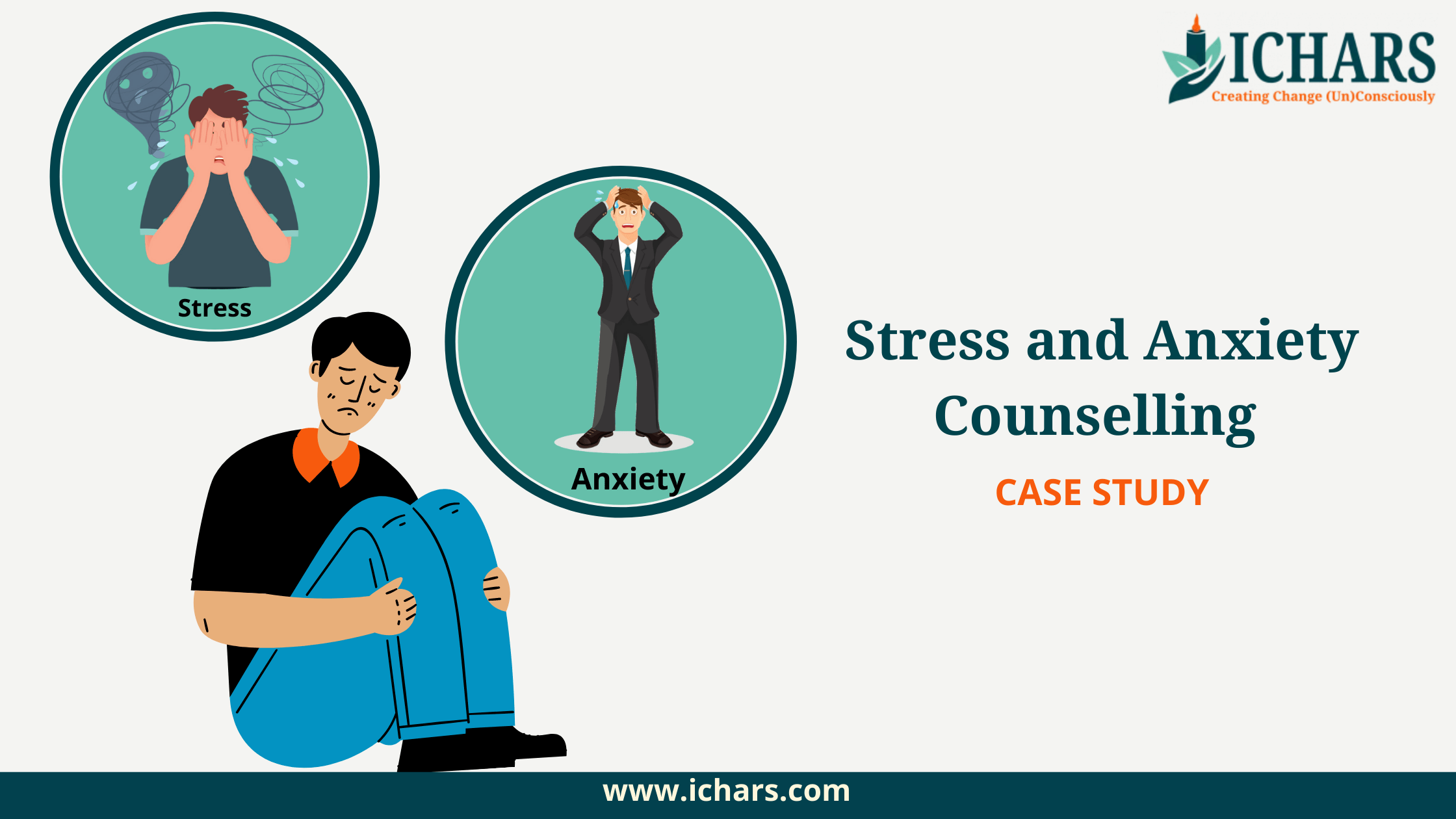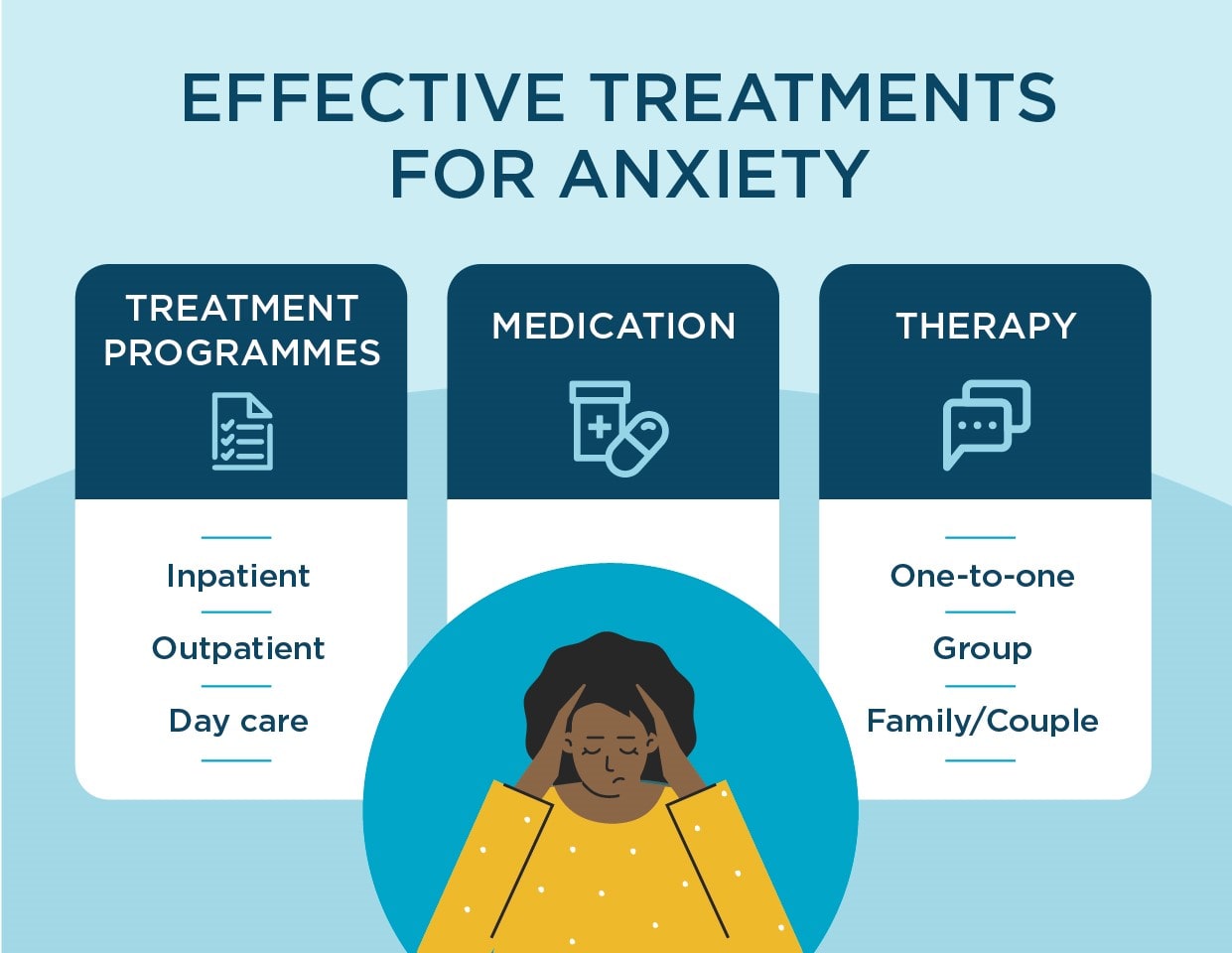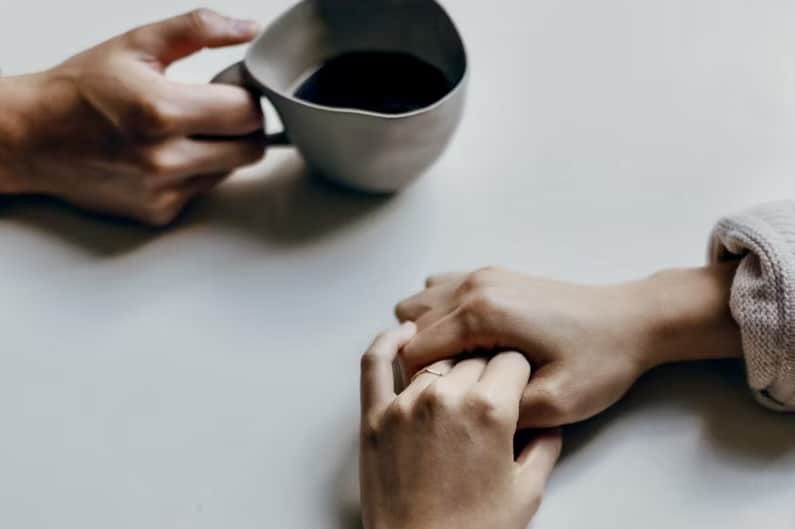Discover meaningful relief with a licensed therapist for anxiety you can trust
Discover meaningful relief with a licensed therapist for anxiety you can trust
Blog Article
Checking Out Different Strategies in Counselling for Anxiety Problem for Long Lasting Modification
When dealing with anxiety disorders, it's necessary to explore a selection of counseling methods. Each method supplies distinct insights and devices to help you handle your symptoms successfully. You could discover that integrating techniques can produce the best outcomes. Understanding the nuances of these strategies is key to fostering long lasting change. What happens if the ideal mix could launch a brand-new level of psychological wellness for you?
Recognizing Anxiety Conditions: A Brief Introduction
Stress and anxiety disorders, which impact numerous people worldwide, can significantly influence daily life. You could experience frustrating feelings of concern or worry that appear uncontrollable. These feelings can lead to physical symptoms like a racing heart, sweating, or even wooziness. Usual kinds of stress and anxiety conditions consist of generalized anxiety condition, panic problem, and social anxiety disorder. Each has one-of-a-kind signs, but they all share a tendency to interrupt your routine and relationships.Understanding the source of your anxiety is crucial. It might originate from genes, brain chemistry, or life experiences. Identifying your triggers can help you handle your reactions better. It is essential to keep in mind that you're not the only one in this struggle. Lots of people encounter similar difficulties, and looking for help is a strong step towards feeling much better. By learning more about anxiousness disorders, you're currently on the path to understanding and handling your condition better.
Cognitive-Behavioral Therapy: Testing Negative Thought Patterns
In Cognitive-Behavioral Therapy, you'll begin by identifying the unfavorable thought triggers that add to your anxiety. You'll work on replacing them with even more favorable alternatives as soon as you acknowledge these ideas. With each other, you'll construct effective coping approaches to assist manage your stress and anxiety in everyday situations.
Recognizing Unfavorable Idea Triggers

When you run into minutes of distress, acknowledging the details triggers behind your unfavorable thoughts can be necessary in handling anxiousness. Start by paying focus to scenarios that provoke sensations of worry or fear. Is it a crowded area, a future deadline, or a conversation with specific people? Jot down these instances in a journal. This will certainly help you determine patterns in your reasoning. Also, notification physical feelings that accompany your negative ideas, like an auto racing heart or rigidity in your chest. By determining these triggers, you get insight right into what's fueling your anxiety. Understanding these connections is the primary step in challenging those thoughts and ultimately reclaiming control over your emotional actions.
Changing Thoughts With Positives
Challenging adverse idea patterns is an essential action in changing your attitude and minimizing anxiety. You may frequently find on your own caught in cycles of self-doubt or catastrophic reasoning. Instead of letting these thoughts determine your sensations, method replacing them with favorable affirmations or realistic options. When you believe, "I can't handle this," change it to, "I can manage difficulties one step at a time." This simple change can significantly influence your mood. Consistently recognizing and countering these adverse thoughts aids produce a healthier interior dialogue. Remember, it requires time and effort, but regularly practicing this strategy can bring about lasting change, encouraging you to encounter stress and anxiety with restored self-confidence and strength.
Structure Coping Strategies Together
Replacing adverse thoughts is only the beginning of handling stress and anxiety successfully. To develop lasting change, you need to construct coping methods that encourage you. Cognitive-Behavioral Therapy (CBT) helps you identify and challenge those purposeless idea patterns. With each other, you and your therapist can explore how these ideas influence your sensations and behaviors.Start by creating functional strategies, like journaling or mindfulness workouts, that allow you to confront anxiousness head-on. When you face your worries gradually, you'll discover to respond in a different way.

Mindfulness and Acceptance-Based Approaches: Cultivating Present-Moment Awareness
As you browse the intricacies of stress and anxiety, incorporating mindfulness and acceptance-based approaches can substantially boost your capacity to cultivate present-moment awareness. By concentrating on the below and currently, you'll find that you can observe your thoughts and feelings without judgment (Counseling services for anxiety). This technique aids you recognize your anxiousness without feeling bewildered by it.Engaging in mindfulness exercises, such as deep breathing, body scans, or assisted reflections, permits you to ground on your own in your current experience. Acceptance-based techniques urge you to welcome your feelings instead than fight against them. When you approve your feelings, they shed their power over you.Incorporating these techniques right into your everyday routine can transform exactly how you react to anxiousness. You'll create strength and learn to browse stressful circumstances with better convenience. Inevitably, cultivating present-moment understanding lays the structure for long-term change, equipping you to lead an extra meeting life
Exposure Therapy: Confronting Concerns Slowly
Exposure therapy aids you face your worries in a gradual means, making it less overwhelming. You'll find out strategies to encounter anxiety-provoking situations step by step, while also developing coping techniques to handle your reactions. This approach encourages you to take control and minimize anxiousness with time.
Progressive Direct Exposure Methods

When facing anxiousness, gradually confronting your worries can be a powerful way to restore control. This technique, called steady direct exposure, entails gradually subjecting on your own to the situations or objects that cause your stress and anxiety. Begin with less daunting scenarios and progressively work your method as much as more difficult ones. For example, if you hesitate of public talking, you could begin by speaking before a mirror, get more info after that proceed to sharing thoughts with a close friend, and eventually resolve a little team. Each action aids desensitize you to the worry, constructing your self-confidence over time. Keep in mind, it's important to rate on your own and commemorate little triumphes as you relocate through this procedure, reinforcing your capability to take care of anxiety properly.
Building Coping Techniques
Building effective coping approaches is important for taking care of stress and anxiety, especially as you challenge your fears slowly - Counseling services for anxiety. One powerful method is direct exposure therapy, where you begin by facing your anxieties in a controlled fashion. Start with less intimidating situations and slowly work your way approximately more difficult scenarios. This progressive exposure helps desensitize you to anxiety triggers, making them much less overwhelming.Incorporate relaxation techniques, such as deep breathing or mindfulness, to soothe your mind during exposure. Track your progression, celebrating small triumphes in the process to enhance your self-confidence. Bear in mind, it's alright to take your time; the goal isn't excellence however constant renovation. By constructing these techniques, you'll empower on your own to navigate stress and anxiety and embrace life more fully
Psychodynamic Treatment: Revealing Origin of Stress And Anxiety
Psychodynamic therapy discovers the subconscious mind, disclosing the source of your anxiousness. By examining your ideas, feelings, and past experiences, this approach helps you uncover underlying problems and unresolved issues that might add to your present stress and anxiety. You'll collaborate with a specialist to explore childhood years experiences, relationships, and psychological patterns that form your actions today.As you get understanding into these deeper layers of your mind, you'll start to acknowledge how past occasions influence your existing actions. This understanding can result in catharsis, enabling you to refine feelings you could have suppressed.Through the healing relationship, you can additionally recognize protection devices that might have established with time, offering a more clear path to change. Ultimately, psychodynamic treatment furnishes you with the devices to resolve your anxiousness at its core, promoting long-term transformation in your emotional well-being.
Holistic and integrative Strategies: Incorporating Techniques for Greater Effectiveness
Integrating numerous therapeutic strategies can enhance your trip towards taking care of stress and anxiety better. By combining components from cognitive-behavioral therapy, mindfulness techniques, and alternative methods, you can develop a personalized approach that resolves your one-of-a-kind requirements. You may use cognitive-behavioral strategies to challenge unfavorable idea patterns while integrating mindfulness workouts to ground on your own in the existing moment.Additionally, discovering alternative practices such as yoga or reflection can advertise relaxation and reduce stress and anxiety symptoms. This mix allows you to create higher self-awareness and resilience.Experimenting with these diverse techniques can assist you discover what resonates most with you. Keep in mind, it's about discovering a harmony that functions, instead of sticking to a single technique. This integrative strategy not only provides immediate relief yet also cultivates long-term abilities for handling stress and anxiety, equipping you to recover control over your life.
The Function of Assistance Systems: Building Strength Via Connection
While it might seem that managing anxiousness is a solitary trip, having a strong support group can play an important duty in your strength. Surrounding on your own with compassionate friends, household, or support system produces a safe space where you can openly share your sensations and experiences. When you connect with others, you remind yourself that you're not alone in this struggle.These connections provide motivation and can give sensible coping methods that have helped others. It's likewise a possibility to acquire point of view; buddies can aid you see situations in a different way, minimizing feelings of isolation.Moreover, psychological support promotes a sense of belonging, which can substantially ease stress and anxiety signs and symptoms. By leaning on your support group, you can develop resilience and tackle challenges better. Bear in mind, connecting for assistance suggests strength, and it can make all the distinction in your journey toward managing stress and anxiety.
Regularly Asked Questions
What Are the Common Signs And Symptoms of Stress And Anxiety Disorders?
You could experience restlessness, fatigue, trouble focusing, irritability, muscle mass stress, and rest disturbances. Physical symptoms can include quick heart beat, sweating, and trembling. Recognizing these indications early can aid you seek ideal assistance and therapy.
The Length Of Time Does Therapy Normally Last for Anxiousness Problems?
Treatment for anxiousness conditions normally lasts anywhere from a couple of weeks to a number of months. It truly depends upon your individual needs, progress, and the techniques your specialist makes use of to assist you manage your anxiety effectively.
Can Medication Be Made Use Of Along With Treatment for Anxiousness?
Yes, medicine can certainly be used alongside therapy for anxiousness. Incorporating both approaches often enhances therapy effectiveness, assisting you manage symptoms while exploring underlying concerns via counseling (Counseling services for anxiety). Always consult your doctor for tailored suggestions
Exist Self-Help Techniques for Managing Anxiety?
Yes, there are numerous self-help approaches for handling anxiety. You can exercise mindfulness, participate in normal workout, preserve a balanced diet regimen, establish a regular, and use deep breathing techniques to aid decrease anxiety signs efficiently.
Just how Do I Know if I Required Professional Assistance for Anxiety?

Report this page